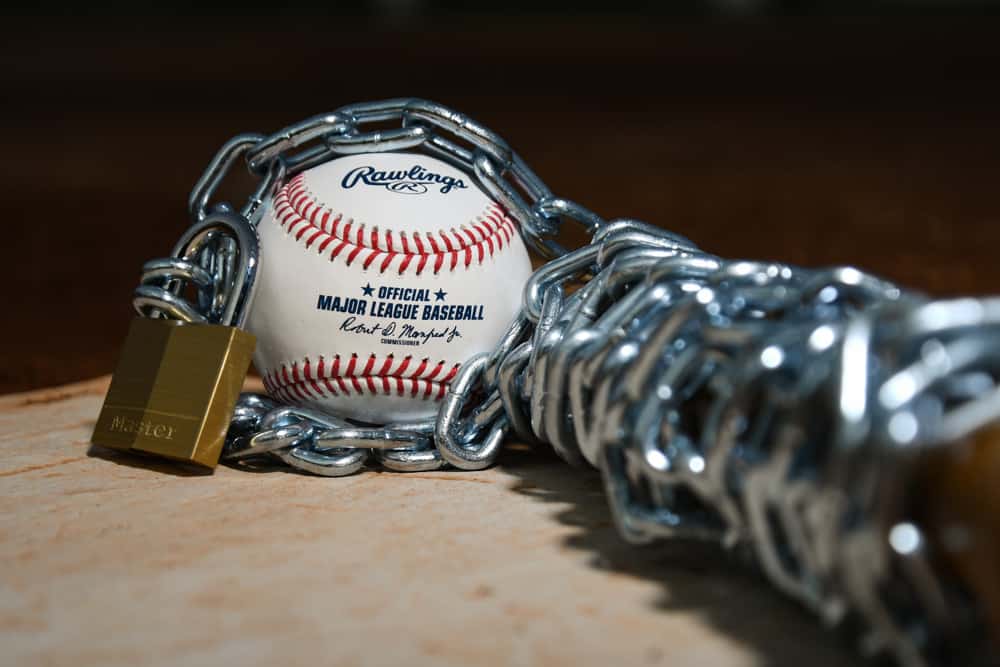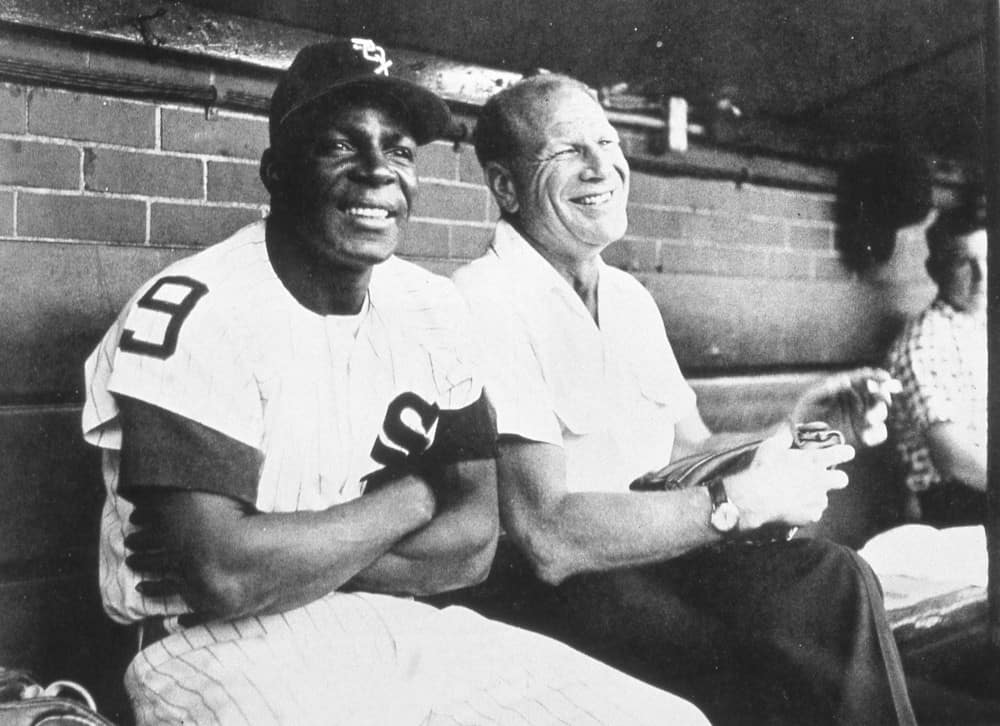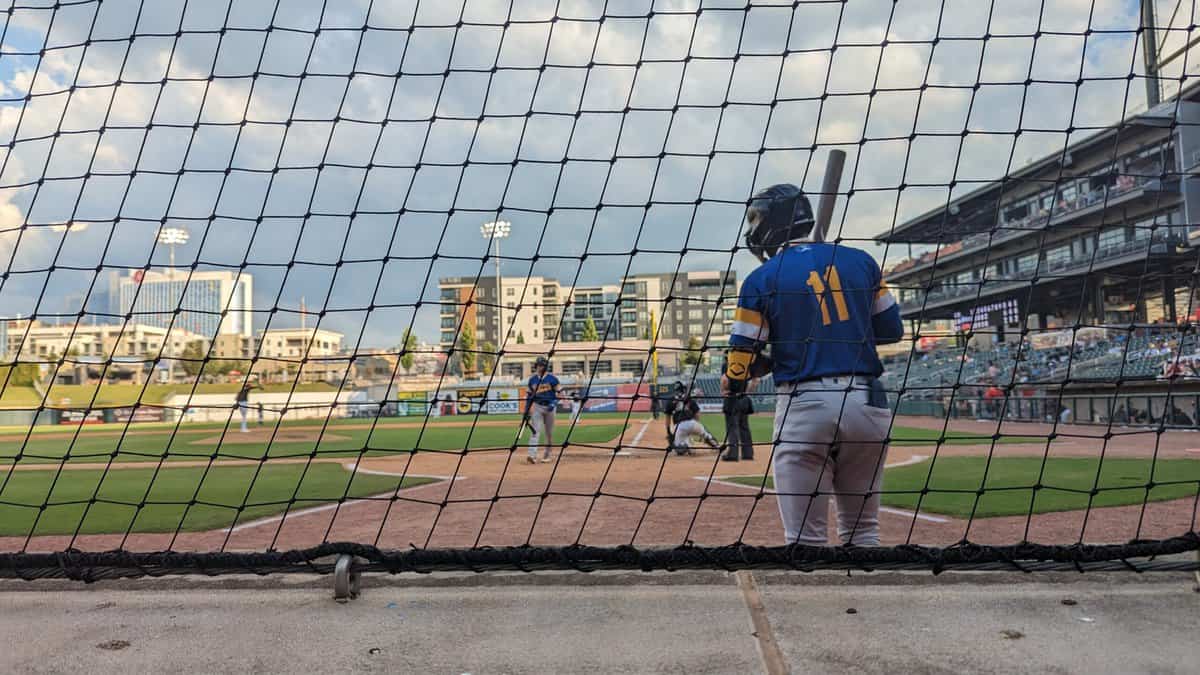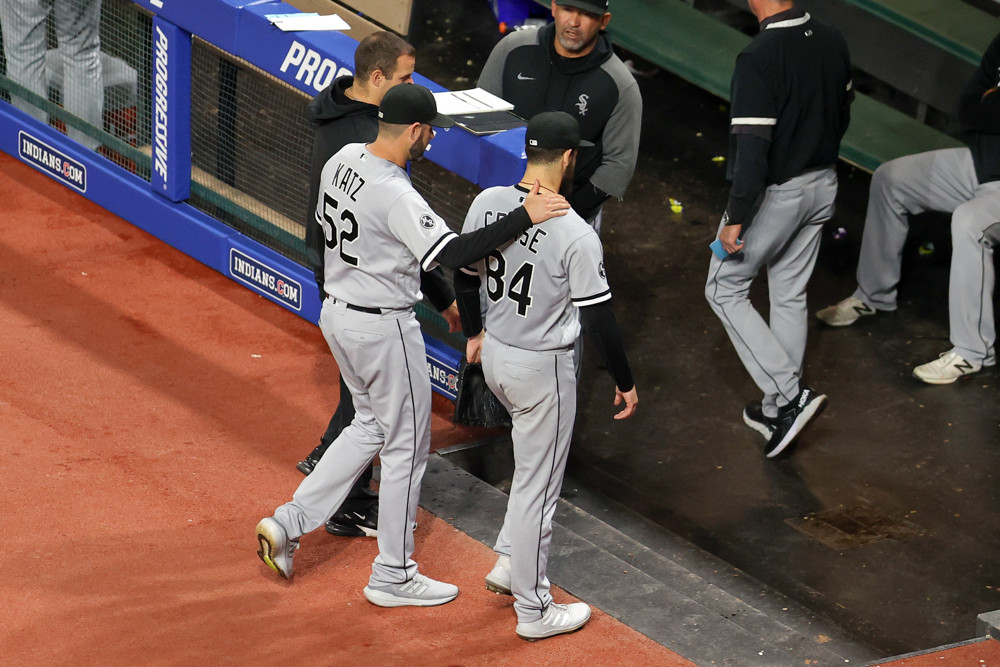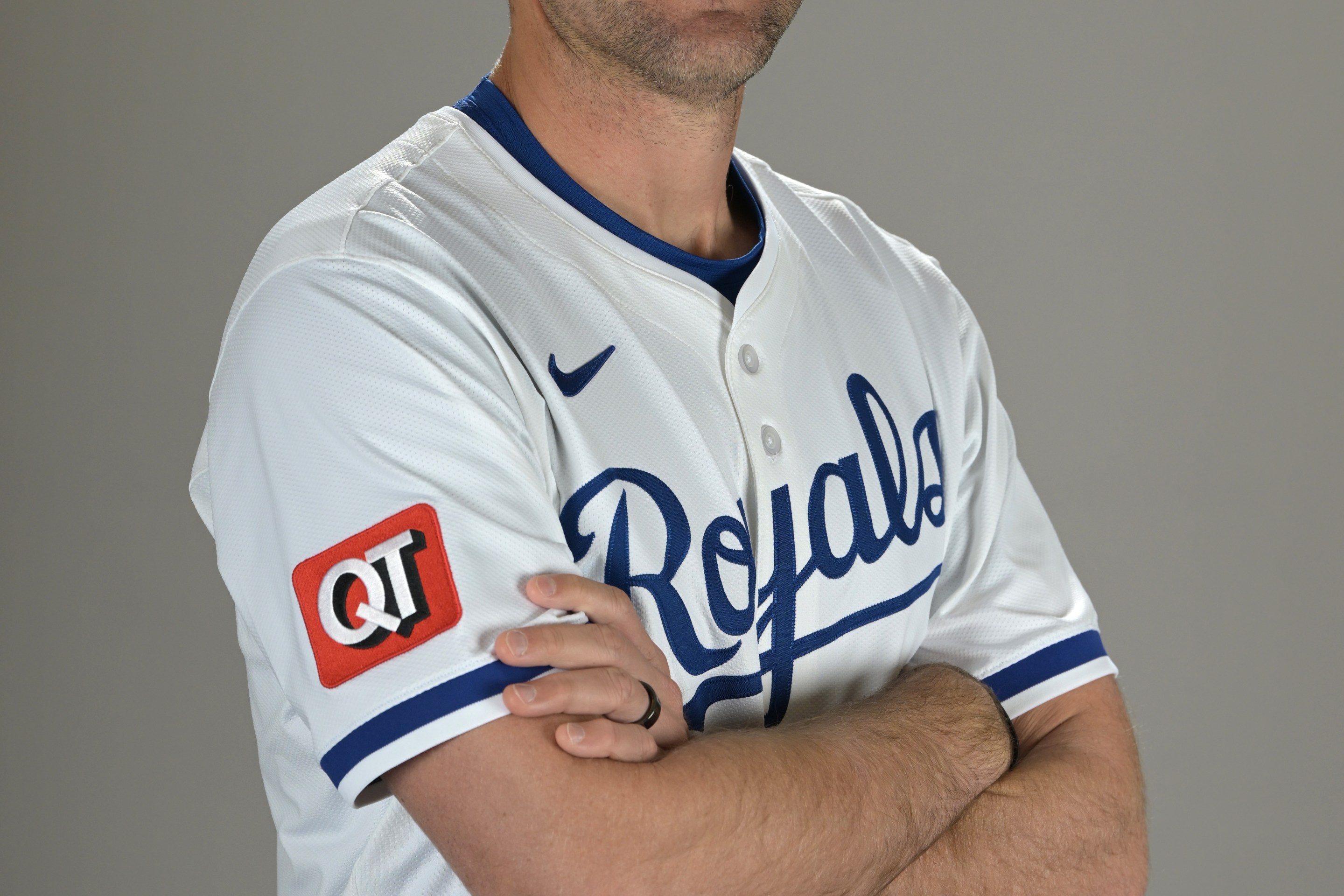A new week brought no new movement with regards to Major League Baseball's lockout of the Players Association. Evan Drellich assessed the landscape and saw minimal nods toward middle ground.
From the players' side, they've ditched the quest for an age-based free agency and a reduction in revenue-sharing for small-market teams.
On the league's side, it's acknowledged the sense of a bonus pool for pre-arbitration players who take the league by storm with impressive finishes on the leaderboards and awards races ... except the league has only proposed a pool of $10 million for players with zero to three years of service time, as opposed to the MLBPA's proposal of $105 million for 0-for-2 players.
In other areas, the league is willing to eliminate draft-pick compensation for free agents ... but without a significant raise in the competitive-balance tax threshold, with stiffer penalties for violators. Drellich paints the picture of a status quo with some gravitational force. MLB either presents the maintaining of the current rules as a win for the players, or manages to undercut a concession in one area with a crackdown in another.
Meanwhile, ESPN's Jesse Rogers wrote about the various dates where mile-markers of the preseason would be jeopardy. He says the start of March is when one should start worrying about Opening Day holding its plans for the end of it. The interesting takeaway from his piece is that thanks to the 60-game schedule, players have a better idea of how to train on their own and manage the circumstances surrounding a report date that's shrouded in mystery.
SPARE PARTS
Regardless of when pitchers and catchers report to spring training, I'll still be reserving next week for Prospect Week. As my thoughts are crystallizing into a final-ish form, I won't dig too deep into Baseball Prospectus' assessment of the system, except to say it runs out of enthusiasm at No. 7 with Jonathan Stiever.
James Fegan's catch-up with Dylan Cease opens with the opening to his Game 3 start in the ALDS, and the letdown of adrenaline after the layoff in the dugout before his second inning. He lumps that in with his diminished-but-still-present tendency to lose his mechanics for an inning at a time, saying that he's richer for all experiences as he tries to close the gap between his current production and his ceiling.
The four-most controversial players are now off the ballot, and while a couple of debates remain -- Alex Rodriguez and Manny Ramirez -- their post-testing suspensions at least offer concrete proof in the PED debate where it didn't exist for, say, Sammy Sosa, so there's a peace with their 30 percent. Next year's ballot figures to be underwhelming, but the debates regain some of their fun when Joe Mauer and Chase Utley join the fray in 2024, with Adrian Beltré looking like the easiest selection in years.
It's cool to see 670 The Score stay local with its overnight programming when the passing of Les Grobstein offered an easy opportunity to go the syndicated route. Mark Grote is going to do the heavy lifting, but Chris Rongey will also be in regular rotation, and he seems well-suited to handle those 2 a.m. callers.
Lance Lynn doesn't appear in Ben Clemens' analysis of pitchers who succeed with "rising" and sinking fastballs, but this post shows how such pitchers with multiple fastballs always have the option of the one a given hitter is likely to do less with. That doesn't sound novel, but it goes a long way to explain why somebody like Bartolo Colón succeeded for as long as he did merely with fastball manipulation, and why Lynn has the makings to follow in his footsteps, at least through the terms of the extension he signed with the White Sox.
My biggest lockout pursuit has been learning how to raise a kid, and that's involved minimizing outside interactions in order to dodge omicron-related complications while he starts building an immune system from the ground up. He just turned two months on Saturday. So far, so good, although I feel that people who say they miss the newborn days are liars.
Beyond all that, I've found fun by venturing further into hi-fi audio, and enjoying the rewards from even minor investments in better equipment. I'd dragged my feet for years because reviews paralyzed me, but I eventually homed in on a specific turntable, and a search for local dealers led me to a small one-man audiophile shop. I'd inadvertently ruled out such places because, I dunno, I assumed my budget would have me laughed out of the room. And maybe some would tell me to look elsewhere, but in this case, he connected the turntable through a few entry-level and next-level-up combinations, allowed me the time to research his recommendations, compare prices and answer further questions. After a few exchanges and two visits, I ended up getting my whole system from him, and I'm not wondering if I did it right. It helps when you're dealing with the same person, and that person likes everything he or she has in the store.
(The latest Progressive turning-into-your-parents ad concerning outward excitement over excellent customer service hits close to home, except I feel no shame about appreciating excellent customer service. On Monday, I bought a ladder from the local Ace Hardware because they offer free next-day delivery, and the guy was happy to drive it over immediately because I lived close enough and he could knock out a tomorrow task today. All of this is great!)
Anyway, I'd switched from Spotify to Tidal months ago primarily because of better artist compensation, but also because I'd improved my headphone situation with some entry-level open-backed Sennheisers. I'd needed new wired cans for podcasting since my previous pair started falling apart, and I figured the combination of clearance-sale headphones and a hi-fi streaming trial offer was the cheapest way to understand if my ears could hear a difference. Turns out it's real.
All of this is to say that I'm following the Spotify controversy because I miss some of the benefits of subscribing to the market leader -- mostly the easy import of playlists from music blogs -- and if more of them wanted to switch to a hi-fi streaming service for any reason, I'm game. Sox Machine is also an audio blog now, at least for as long as the lockout persists.
Sox Machine also remains a curling blog. If you subscribe to ESPN+, you can watch the Scotties (Canadian women's national championships) and Brier (men's) this month. In between is the Olympics, and USA Curling posted a great crash-course video.
